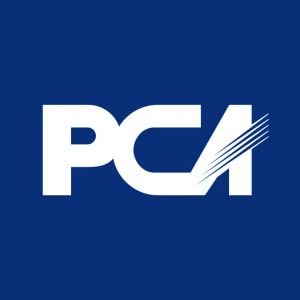Packaging Corporation of America Announces Conversion of Jackson, AL Mill Paper Machine to High-Performance Virgin Linerboard
Packaging Corporation of America (NYSE: PKG) announced the discontinuation of uncoated freesheet (UFS) production at its Jackson, AL mill, transitioning the No. 3 paper machine to a linerboard production line. The conversion will increase capacity from 365,000 tons to 700,000 tons per year over 36 months. Initial production is set at 75% capacity post-first phase outage in 2022, with full capacity by late 2023. The capital investment is around $440 million, with projected pre-tax charges of $5-$10 million and $15-$20 million in asset impairment. PCA emphasizes improved profitability and supply integration.
- Transition to linerboard increases production capacity from 365,000 tons to 700,000 tons annually.
- Phased conversion expected to enhance profitability and meet packaging demand.
- Initial production rate of approximately 75% capacity post-conversion phase.
- Pre-tax cash charges of $5-$10 million anticipated from discontinuing UFS production.
- Expected asset impairment and accelerated depreciation charges of $15-$20 million.
Insights
Analyzing...
Packaging Corporation of America (NYSE: PKG) today announced that it has discontinued production of uncoated freesheet (UFS) grades on the No. 3 paper machine at its Jackson, AL mill and will begin preparing for the permanent conversion of the machine to linerboard. As previously disclosed, in order to meet strong packaging demand and maintain appropriate inventory levels, the machine temporarily began producing linerboard in the fourth quarter of 2020 and continued producing linerboard in the first quarter of 2021. The mill will now begin preparations to permanently convert the 365,000 ton-per-year No. 3 UFS paper machine to a 700,000 ton-per-year high-performance, virgin kraft linerboard machine, in a phased approach, over the next 36 months.
Plans are for the machine to run at its current containerboard production rate for the next 12 to 15 months until the scheduled first phase outage is taken in the second quarter of 2022. After the first phase outage, the converted machine is expected to operate at an initial production rate of approximately
PCA Chairman and CEO Mark Kowlzan said, “The phased conversion over the next few years of the No. 3 paper machine at our Jackson Mill will provide much needed internal linerboard supply. This gives us a runway for maintaining an optimal integration level and enables us to further optimize and enhance our current mill capacity and box plant operations. We were able to refine our previous studies and assumptions in order to more accurately define the process changes, in a phased approach, to fully utilize the potential of the mill to produce excellent quality, lightweight, high-performance linerboard at its optimal cost. This approach allows us to effectively enhance the mill’s profitability and viability by managing the exacerbated decline in demand for UFS products while addressing the Company’s integrated containerboard supply needs. This project provides a great opportunity for PCA and the Jackson Mill. We are appreciative of the continued support from the State of Alabama, the Alabama Department of Commerce, the City of Jackson and Clarke County to help us continue providing quality jobs and a positive economic impact in the Jackson community.”
Paul LeBlanc, Vice President – Paper, added, “We remain committed to the paper market and will work closely with our customers in the coming months to match our supply with their demand requirements. We will continue to serve customers with the No. 1 paper machine at Jackson and both machines at our International Falls, MN mill, which is capable of producing all of Jackson’s paper grades. Our customers will continue to receive the high-quality products and service they are accustomed to.”
PCA Executive Vice President Tom Hassfurther concluded, “The machine conversion at Jackson gives us the ability for the next several years to continue supplying high quality, PCA-made board that our customers request. We are committed to being fully integrated, and we have a track record of ramping-up production from machine conversions according to our customers’ demand needs.”
PCA is the third largest producer of containerboard products and the third largest producer of uncoated freesheet paper in North America. PCA operates eight mills and 90 corrugated products plants and related facilities.
Some of the statements in this press release are forward-looking statements. Forward-looking statements include statements about expected benefits from the conversion activities, the expected costs of the machine conversion, the capabilities of the converted machine, the timing of completion of the machine conversion activities, our future earnings and financial condition, the impact of the COVID-19 pandemic on our business, expected benefits from acquisitions and restructuring activities, our industry and our business strategy. Statements that contain words such as “will”, “should”, “anticipate”, “believe”, “expect”, “intend”, “estimate”, “hope” or similar expressions, are forward-looking statements. These forward-looking statements are based on the current expectations of PCA. Because forward-looking statements involve inherent risks and uncertainties, the plans, actions and actual results of PCA could differ materially. Among the factors that could cause plans, actions and results to differ materially from PCA’s current expectations include the following: delays, difficulties, or higher than expected costs in completing the conversion project or achieving the expected benefits of the project; the impact of the COVID-19 pandemic on the health of our employees and on the employees of our suppliers and customers, on our ability to operate our business, and on economic conditions affecting our business and demand for our products; the impact of general economic conditions; conditions in the paper and packaging industries, including competition, product demand and product pricing; fluctuations in wood fiber and recycled fiber costs; fluctuations in purchased energy costs; the possibility of unplanned outages or interruptions at our principal facilities; and legislative or regulatory requirements, particularly concerning environmental matters, as well as those identified under Item 1A. Risk Factors in PCA’s Annual Report on Form 10-K for the year ended December 31, 2020, and in subsequent quarterly reports on Form 10-Q, filed with the Securities and Exchange Commission and available at the SEC’s website at “www.sec.gov”.
View source version on businesswire.com: https://www.businesswire.com/news/home/20210225005966/en/







